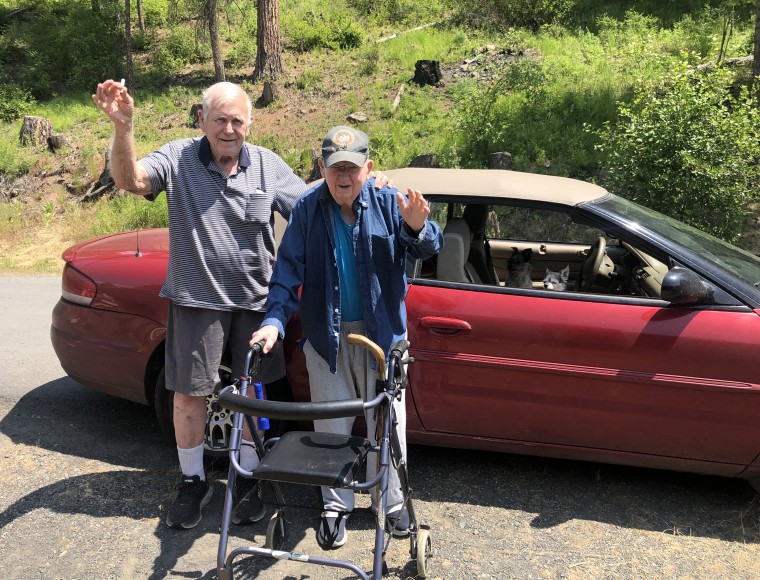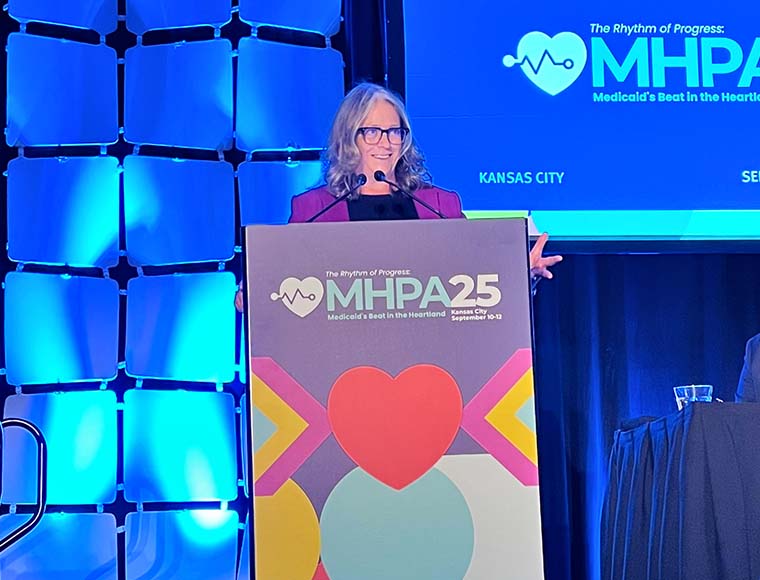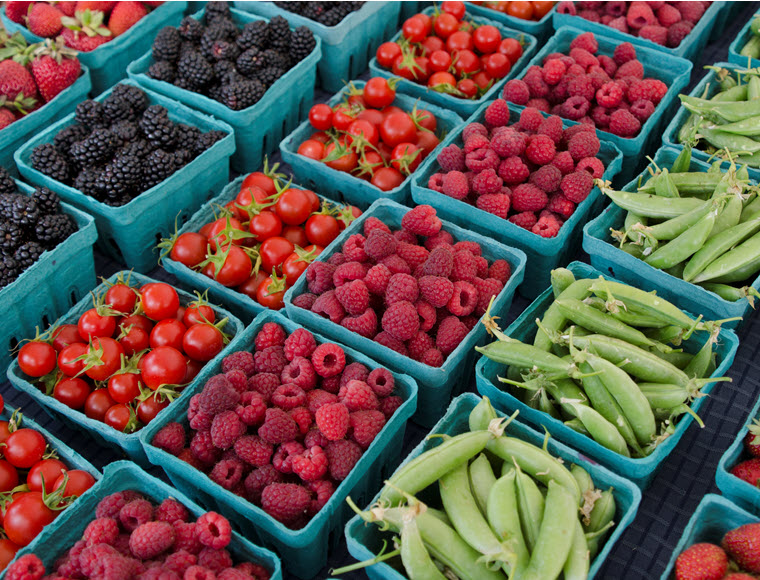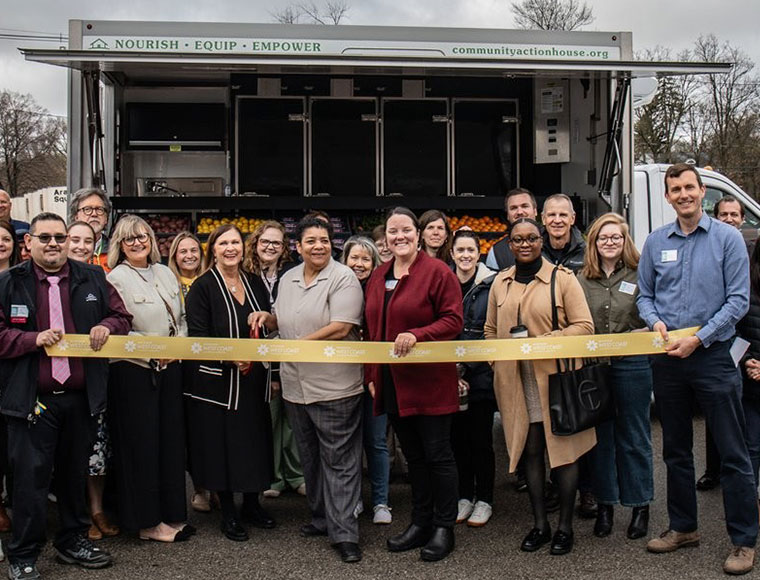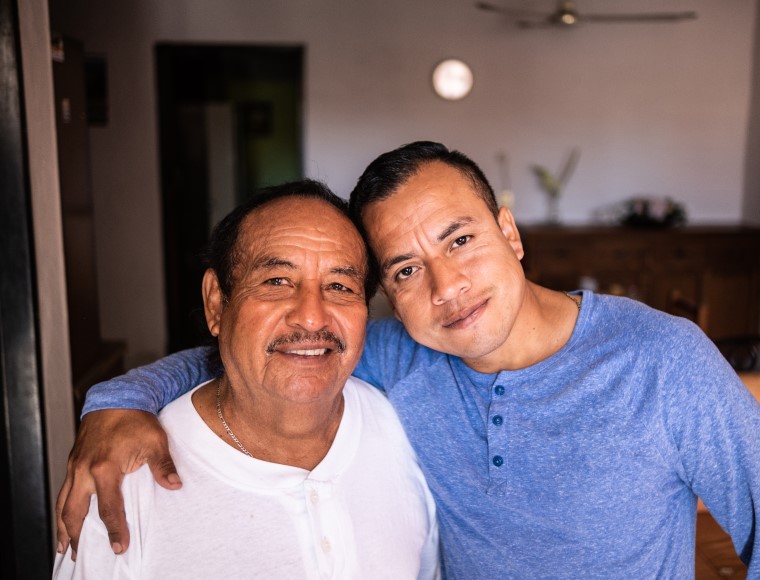Native Americans experience stark disparities in health outcomes and life expectancy. Compared to white Americans, Native Americans experience higher rates of chronic diseases and conditions impacted by food and nutrition.1 In Kansas, Native Americans are nearly twice as likely as white residents to report fair or poor health.2
Social drivers of health (SDOH), like access to healthy foods, have been uniquely shaped in Native American communities as a result of historical policies that disrupted traditional food systems, land ownership and ways of life.3 25% of Native Americans are food insecure, contributing to inequitable health outcomes. Healthy, nutritious foods can be a tool to treat or prevent certain health conditions – a concept known as Food As Medicine that is deeply rooted in the history and traditions of Indigenous communities.4,5
To increase access to healthy, nutritious food in Native American communities in Kansas, UnitedHealthcare has provided a $275,000 grant to the American Heart Association (AHA) to expand partnerships with the four Tribal Nations located in Kansas. AHA will work with the Iowa Tribe of Kansas and Nebraska, the Kickapoo Tribe, the Prairie Band Potawatomi Nation and the Sac and Fox Nation to develop culturally-tailored programs addressing food and nutrition security, including a Food As Medicine pilot. Importantly, the programs will strive to uplift Tribal citizens’ power and influence over their food systems, center the leadership and perspective of Tribal members, and preserve the significance and relevance of traditions related to food systems and nutrition.
Intertribal Collaboration
In August, the organization hosted a Tribal Health Summit, led by community members from the four tribes of Kansas. The event brought over 100 stakeholders together to discuss topics impacting Native American communities, including food sovereignty, mental health and how SDOH can impact access to care. For those who could not attend the Kansas Tribal Health Summit, a mobile museum from the Children's Discovery Center will be visiting the various reservations starting in December 2023. The mobile museum will engage young people about mental health topics, and offering blood pressure screenings through AHA. The mobile museum will help to improve awareness and prevention of chronic conditions that disproportionately impact Native communities.
Food As Medicine
The funding will also support a pilot program conducted in collaboration with the White Cloud Health Center, which serves the Iowa Tribe of Kansas and Nebraska and the Sac and Fox Nation. The program aims to embed access to healthy traditional foods, grown on Tribal farms, into health care delivery at the health center, which is located directly on Tribal land. The program will focus on applying AHA best practices to address chronic diseases, including a self-measured blood pressure program. The AHA and White Cloud Health Center will collaborate to indigenize best practices to maximize relevance and health outcomes.
Storytelling
The AHA aims to support each Tribal Nation in building a culture of healthy food access and nutrition. In collaboration with an Indigenous communications consultant, they will work with Tribal members to leverage storytelling to promote health and wellness in alignment with traditional lifestyles and practices. The programming will pair health education resources with culturally-relevant messaging focused on topics including chronic disease management, physical fitness, reconnecting with traditions and fostering community wellness.
UnitedHealthcare is committed to supporting organizations that advance health equity in the communities that we serve in Kansas. Through expanded programming with Kansas’ four Tribal Nations, the American Heart Association is working to close disparities in social drivers of health and health outcomes. The partnerships will bring together education opportunities, culturally-tailored best practices, and storytelling to improve access to healthy, nutritious food while preserving each Tribal Nation’s traditions and food systems.
Sources
- https://www.ihs.gov/nutrition/food-and-nutrition-security
- https://www.countyhealthrankings.org/sites/default/files/media/document/state/downloads/CHR2019_KS.pdf
- https://www.cbpp.org/research/food-assistance/the-historical-determinants-of-food-insecurity-in-native-communities
- https://health.gov/our-work/nutrition-physical-activity/food-medicine
- https://indigenousvalues.org/contributions/native-american-foods-medicines/





